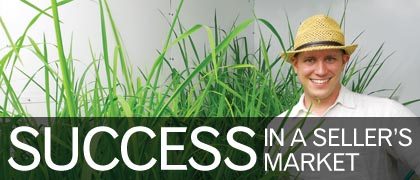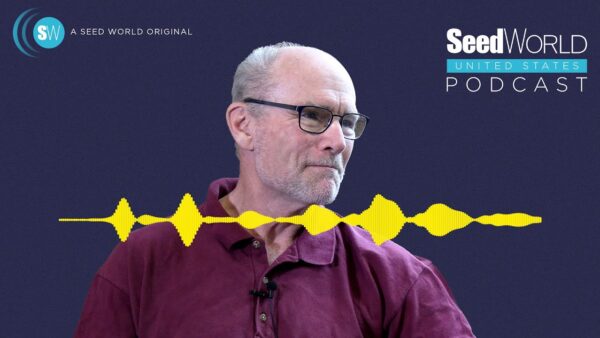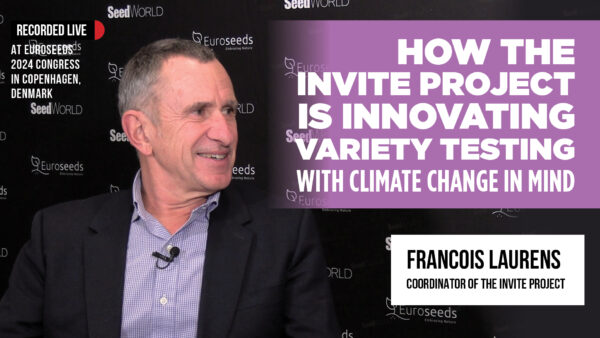Astute companies are using corporate social responsibility initiatives to attract and engage top talent in a tight market. Part two of a three-part series on employee recruitment and retention.
Joshua Cobb, a PhD student at Cornell University, wants to make a difference in the world. And in his chosen line of work, he might be able to do just that. As a plant breeder, Cobb is one of the precious few ag graduates companies are vying to recruit.
Just months from earning his PhD, Cobb is being courted by all the majors. Like other graduates in ag-related fields, he’s a hot commodity in a seller’s market. But he hasn’t let it go to his head—instead, he plans to leverage his position in the talent market to forward his own goals for social development.
“To find myself sitting in a position where large multinational companies are interested in what I bring to the table is really humbling. I look at it as an opportunity to leverage a little bit of the difference I want to make in the world,” says Cobb. “It’s harder to feel like you can be true to your own sense of social responsibility if you’re struggling to get a job in the first place. But if you have lots of different people vying to employ you, that gives you a little more freedom to concern yourself with how you want your career to impact the rest of your life.”
Cobb’s sense of social responsibility intensified after his travels in Argentina in 2001, which coincided with a period of tremendous political and economic turmoil for that country. “The peso crashed overnight … and the government literally went through seven presidents in less than seven days. Even martial law was instituted in many of the highly populated areas to control looting and riots,” Cobb explains. “I knew families who were already struggling to make ends meet and suddenly they had no money to buy food. One of the most striking scenes for me was watching a group of women who were banging empty pots and pans on the gates of Wal-Mart saying, ‘Let us in, let us in.’ They wanted access to the food locked behind those gates,” he says.
The scene left a deep and lasting impression on Cobb, who left the country with a renewed sense of purpose. “Whatever I did with my career, I wanted it to mean something,” he says. “I wanted it to mean something for people—for the alleviation of human suffering.”
Cobb found that purpose in plant breeding. “For me, plant breeding was biology made relevant. It was biology that had real economic consequences, and that’s what I was looking for.”
Now as Cobb examines his job options, he finds he’s in a position to consider more than just a paycheck.
“I approach my job search at the end of my PhD with a tremendous sense of social responsibility. In plant breeding, where jobs are plentiful, we don’t have to concern ourselves with salaries and compensation packages—those are a given, we know they will be good. Now, all of a sudden, our decision-making criteria fall upon concerns secondary to our economic needs—for me, part of that is social responsibility,” says Cobb.
A tight market for new talent allows graduates like Cobb to scrutinize companies’ social policies and responsibilities before signing on the dotted line. And they do.
“I look at potential employers, and at some level I consider their formalized commitment to society and the environment, but I’m mostly looking for a venue that allows me the freedom to pursue crop improvement in a way that both meets my obligations to my employer, and their obligations to their shareholders, but also empowers my own goals of finding science-based solutions that contribute to the abolition of poverty and hunger,” Cobb says.
|
Jeanne Meister is the author of The 2020 Workplace: How Innovative Companies Attract, Develop and Keep Tomorrow’s Employees Today. |
Social License
According to Darren Swanson, the International Institute for Sustainable Development’s Natural and Social Capital Program deputy director and Foresight Group program leader, social responsibility (also known as corporate social responsibility) is an organization’s accountability for the impacts of its decisions and activities on society and the environment through transparent and ethical behavior that is consistent with sustainable development and the welfare of society.
This definition is based on the International Organization for Standardization’s ISO 26000 standard, he says, which provides guidance to both business and public sector organizations on social responsibility.
“It takes into account the expectations of stakeholders, is in compliance with applicable law and consistent with international norms of behavior, and is integrated throughout the organization,” says Swanson.
“I see social responsibility as an organization taking a system’s view—looking at its economic, social and environmental performance. It’s a fairly well-accepted understanding there is a holistic set of issues that an organization should be planning around and reporting on to give the shareholder or the taxpayer the information they need to know about how the organization is performing—that’s key.”
Companies reporting on their social responsibility efforts benefit in many ways, says Swanson, such as positioning them with a social license to operate, increased competitiveness and trust from local stakeholders and communities, increased ability to deal with complex and dynamic situations—and employee attraction and retention.
“My sense is that the new generation of employees coming out of school are pretty savvy with respect to social and environmental issues and are attracted to organizations that get the big picture—because they see the big picture,” says Swanson.
Companies are looking at social responsibility in a new light, says Jeanne Meister, founding partner of Future Workplace and co-author of The 2020 Workplace: How Innovative Companies Attract, Develop and Keep Tomorrow’s Employees Today, because a commitment to CSR can attract top talent. In the book, Meister quotes research conducted by Cone Communications from the Cone Millennial Cause Study, which indicated 80 percent of 1,800 13- to 25-year-olds want to work for a company that cares about how it impacts and contributes to society.
This year, research conducted by Future Workplace and reported in Multiple Generations @ Work found 69 percent of the 1,189 multiple-generation employees and 150 managers surveyed want to work for an organization whose values match their own. “This emphasis on CSR is now important beyond the Millennial segment of the workforce and is fast becoming one of the key levers for attractiveness to employees,” says Meister.
A study conducted by Net Impact entitled 2020 Workplace: Preparing for the Future, and noted in Meister’s blog on Forbes.com, indicated 35 percent of the workers surveyed would take a 15 percent pay cut to work for a company committed to CSR; 45 percent would take that pay cut for a job that makes a social or environmental impact and 58 percent would take the pay cut to work for an organization with values like their own.
However, not only are companies using social responsibility as a driver to attract and keep the best and the brightest, but they are also using CSR as a tool for employee engagement.
“If you’re contributing to a cause, it impacts your level of engagement to your core job function,” says Meister. A recent survey by Advanced Micro Devices indicates 96 perce
nt of its green team members agreed that contributing to a cause while at work improved their commitment and level of engagement to their core job function and to the company, notes Meister.
“If you care more about your job, you’re going to go the extra mile for your customers,” she says. “Companies are now focusing on tracking the connection between employee engagement and customer satisfaction.”
Employees at Bayer CropScience will go that extra mile for their customers, and in turn, for their employer. According to an internet survey on science careers by the journal Science, respondents highlighted Bayer’s social responsibility agenda—as well as high-quality research and employee loyalty—as reasons for Bayer’s status as one of the world’s top employers, says Utz Klages, an external communications manager for Bayer CropScience.
Bayer is heavily invested in its commitment to sustainability. One of Bayer’s corporate objectives is to achieve a balance between economic, social and ecological concerns within the context of its responsibility for the environment and society.
“Social commitment is an established part of Bayer CropScience’s sustainability strategy and corporate policy. We consider ourselves part of society and see our commitment as living up to the role of a good corporate citizen,” says Klages.
From food chain partnerships, which help growers produce high-quality food using the principles of sustainable agriculture, to agricultural education, numerous dynamic initiatives are underway at Bayer as part of its social responsibility platform.
“We view the promotion of worthy causes, such as agricultural education, as a long-term investment in society’s future viability, and as a contribution to a positive business environment propelling farming’s future,” says Klages. “In many parts of the world, we also promote educational opportunities for the next generation focused on agricultural science and raising awareness of the judicious use of natural resources such as land, soil and water.”
|
Future plant breeder Joshua Cobb is attracted to international assignments. |
International Draw
Some companies are offering placements in countries with emerging markets—such as Brazil, Russia, India and China—as part of their recruitment packages to attract socially-minded talent. These programs, such as IBM’s Corporate Service Corps, offer participants life-changing experiences, building ‘global citizenship skills,’ while allowing the company to meet its own financial and social interests, illustrating a growing trend of companies making CSR strategic to its objectives.
“A number of companies that have created initiatives under the rubric of CSR are managed by the organization’s foundation to both build global citizenship and make it strategic so it’s actually using an employee’s skills in one of the countries around the world that the company has designated high growth within the next decade and aligning it to the recruiting objective.
“It’s a very big trend that companies are getting strategic around CSR. They’re saying, ‘If we’re going to devote resources and time, we want these aligned with our corporate priorities and use them as a driver to recruit and engage top talent,” says Meister.
For Cobb, an international placement may be the clincher to securing his talents. “It is really important to me to serve the component of the global population that I feel could really stand to benefit from high-yielding varieties and improved agricultural technology. That’s why, when I talk to prospective employers, the first thing I ask about is an international assignment.”
One company has already approached Cobb about working with a rice breeding operation in India. “I’m excited because if you look at India and you consider rice productivity, rice yields are about one-third of what they are in China. There’s a lot of progress to be made.
“I look at it as an opportunity where I can serve a company and their financial interests but do it in a way that’s parallel to the development interests of a growing population that struggles to feed itself. It’s a unique opportunity—it’s rare for the financial interests of a multinational organization to be in line with the goals of poverty alleviation and development,” says Cobb.
And once a company has successfully attracted top talent like Cobb, social responsibility initiatives may help to keep him. “I’m attracted to, and more likely to stay with, a company that works to connect its employees in collaborative networks that expand my own thinking—that nurture synergistic ideas. The bottom line for me is I want to work with an organization where I can build a career that supports, rather than competes, with my own sense of social responsibility and civic duty,” he says.
Kari Belanger
|
Keeping it Fresh For companies doing business today, the generation of annual sustainability reports is the norm. These documents can be found on a company’s website, often as an attached PDF; however, reporting on sustainability efforts in this way is outdated, says Jeanne Meister, founding partner of Future Workplace and author of The 2020 Workplace: How Innovative Companies Attract, Develop and Keep Tomorrow’s Employees Today. Companies wanting to communicate their social responsibility initiatives to attract new talent are using social media, such as Twitter and Facebook, to engage in conversations with prospective employees about CSR. Some companies are even creating their own apps. “Advanced Micro Devices has an app for the iPad that details its commitment to CSR,” says Meister. “It’s no longer buried in a 400-page PDF on the website. Companies are now communicating in the broadest way possible—on the iTunes store as an app.” Another growing trend is for companies to use crowdsourcing to reach out to their employees to offer suggestions for new or updated social responsibility initiatives. “Crowdsourcing is being used as a tool to get more feedback from employees as to what other CSR efforts they can be working on,” says Meister. |















